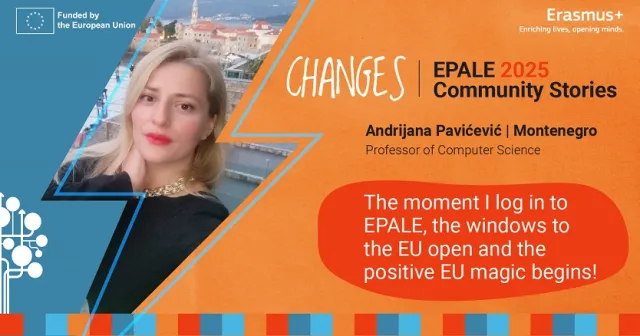Az EPALE fókuszában a pénzügyi kultúra

A pénzügyi kultúra a tudatosság, ismeretek, készségek, attitűdök és viselkedések kombinációja, melyekre szükség van a megalapozott pénzügyi döntések meghozatalához és végső soron az egyéni pénzügyi jólét eléréséhez.
A készségek ezen kombinációja segítséget nyújt a megalapozott pénzügyi döntések meghozatalában.
A pénzügyi kultúra azt jelenti, hogy az emberek képesek jobb döntéseket hozni amikor tanulmányaikra és a nyugdíjas éveikre teszik félre a pénzt, illetve ki tudják választani a számukra legmegfelelőbb hitelkonstrukciót a lakásterveikhez.
Tudjon meg többet a pénzügyi kultúrára kialakításáról professzor Annamaria Lusarditól, a pénzügyi kultúra szakértőjétől.
A pénzügyi kultúra nem csak a tanulóknak szól – ez egy olyan készség, amelyet sokan nélkülöznek felnőtt életük során, de szükséges az egyéni pénzügyi jóllét eléréséhez. Az EPALE Pénzügyi Kultúra Hete (május 23-27.) alkalmából a nemzeti támogató szolgálatok összegyűjtötték és rendelkezésre bocsátották a platformon a témához kapcsolódó blogposztokat és hasznos szakmai anyagokat.
A pénzügyi kultúrához kapcsolódó tartalmak megtekinthetők:
Blogbejegyzések
- Creating a participative curriculum in financial literacy for young adults at risk with young adults at risk (EN)
- Developing the Financial Capability of Further Education Learners (EN)
- Dutch government helps citizens do their taxes (EN)
- Financial education (RO)
- Financial literacy – controversial concepts and reflections (DE)
- Financial literacy – more than just arithemtics (DE)
- Identifying and Addressing Misconceptions in Fractions (EN)
- Questions and answers with Jean Beaujouan (FR)
Szakmai anyagok
- Basic economic adult education – final report (DE)
- Bulgarian map of financial literacy (BG)
- Catalogue of materials for the development of financial literacy (CS)
- CurVe Guidelines on financial literacy (DE)
- Economic literacy – new perspectives (DE)
- Economic skills: what they include and how they’re measured (DE)
- FINALLY – Financial literacy for a better quality of life (EN)
- Financial Education in Europe Trends and Recent Developments
- Financial literacy - programmes and service plans (DE)
- Financial literacy and recognition (DE)
- Financial literacy and the tasks at hand in Hungary (EN)
- Financial literacy in Albania: Survey results for measuring financial literacy of the population, 2011 (EN)
- Financial literacy, vocational training and the world of work (HU)
- Interview with Miriam Claudi about economic education (DE)
- Keyword: Economic education (DE)
- La 'Financial literacy' in Luxembourg (FR)
- Manage Personal Finances Are Part of Lifelong Learning (EN, LT)
- Measuring attitudes to financial literacy (HU)
- National Financial Education Strategy (CS)
- National Strategies for Financial Education: OECD/INFE Policy Handbook (EN, RO)
- PISA 2015 Assessment and Analytical Framework Science, Reading, Mathematical and Financial Literacy (EN)
- Power Point Presentation: Retirement Income and Financial Literacy Malta (EN)
- Relationship to money and over-indebtedness (FR)
- Retirement Income and Financial Literacy in Malta (EN)
- Teaching financial literacy and numeracy to adult learners (EN)
- Teaching Financial Skills (EN)
- The battle against financial illiteracy in France (FR)
- The level of financial literacy in Romania (RO)
- Video in the project FINALLY – Financial literacy for a better quality of life (EN)
- What is financial literacy? (FR)





Finanšu plūsma
Kā radīt finanšu plūsmu?